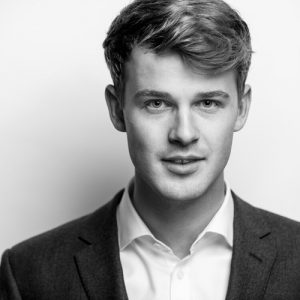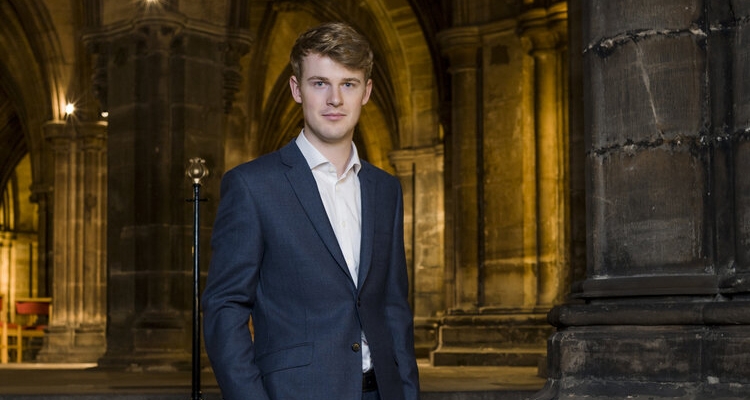Andrew Forbes, Director of Music at Glasgow Cathedral, is a prize-winning Scottish organist and a shortlisted competitor for this year’s St Albans International Organ Festival. Having graduated MMus (Distinction) from the Royal Conservatoire of Scotland, Andrew is in increasing demand for performances throughout Europe, whilst continuing his studies with Dame Gillian Weir, supported by awards from the Hope Scott Trust and the McGlashan Charitable Trust. He teaches organ and historical keyboards for RCS Junior Conservatoire and Glasgow University, also appearing regularly on the faculty of St Andrews Organ Week. Andrew is a winner of the Northern Ireland International Organ Competition and the RCS Prize for Early Music. Recent solo recital venues include St Paul’s Cathedral (London) and the Philharmonie de Paris.
What is your first memory of the organ?
Fascination and disappointment, in equal measure… I was awestruck after attending my first organ concert as a little boy, and approached the organist afterwards to ask a few questions, including if I could become an organist too. I’m sure you can imagine my disappointment when he said I’d have to wait a few years—until my legs were long enough to reach the pedals!
 Where do you draw your inspiration from in your music?
Where do you draw your inspiration from in your music?
As organists, we have the great challenge – and privilege – of performing on a unique instrument everywhere we go. Although late-night rehearsals and unexpected ciphers sometimes make me feel otherwise, I feel hugely creative and invigorated by engaging with the personalities of these different organs. Ahead of concerts I already know largely what I want to say but, once I arrive in the venue, I always find that the organ has something to tell me too. It’s this symbiosis between artist and instrument that helps me make each performance truly individual.
What is your favorite thing about music?
I allude to this in my next answer, actually! Music has a wonderful ability to invoke emotions we can’t describe, and to capture feelings for which there are no words. I find it incredible that we can be moved so profoundly by something which is, essentially, a series of invisible waves. Whether it’s the exhilaration of new sounds and harmonies, the timeless rapture of a magical quiet movement, or the nostalgia we feel when listening to something we haven’t heard for years, the way music touches us is special indeed.
What is the best piece of advice you received from an organ teacher?
At school I was torn between music and science, and went on to take my undergraduate degree in Naval Architecture; I’ve always adored being a musician, although I was often aware that my scientific mind would lead me to analyze and overthink. Whilst this can be very useful at times, the most valuable advice I’ve had was from my current teacher, Gillian Weir, when she suggested I stop thinking in words, and start picturing images instead. It felt like I’d learnt a different language! (On a more practical note, I’d also like to give an honourable mention to John Kitchen’s advice about listening to the room, rather than to the instrument. Especially useful when checking balances between divisions…)
Do you have any upcoming projects that you’d like to promote?
I’m very excited to be playing for live audiences again, and to be giving the world première of a major work for organ and electronics next month, on the 2017 Aubertin organ in Newcastle University. Edwin Hillier’s Hyphae explores saturation of timbre – so it’s a seriously immersive experience – and draws inspiration from organic growth in the natural world. It also evokes Messiaen’s Méditations sur le Mystère de la Sainte Trinité in huge octatonic climaxes! We’ll be releasing a recording next year, with two of Edwin’s other major works, which you’ll be able to get at www.andrewforbes.org
This interview was supplied by the Canadian International Organ Competition.


